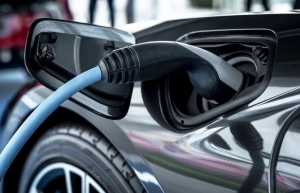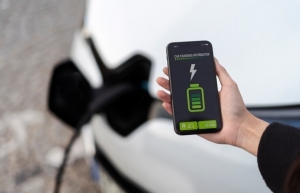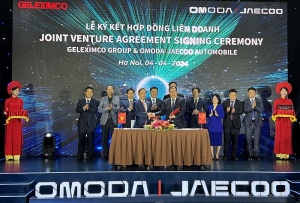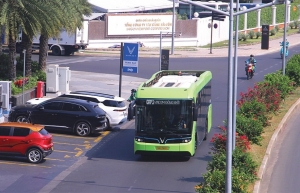Electric vehicles gradually proving their superior value
What are your expectations from this cooperation?
 |
| Tran Hung, marketing manager of the joint venture |
As one of the top 10 multi-industry, reputable private corporations in Vietnam, with total assets of $3.6 billion at the end of 2023, Geleximco focuses on key industries including industrial production, infrastructure in real estate, finance and banking, and trade and services.
The cooperation between OMODA&JAECOO and Geleximco is not only an important step for us in the development strategy of the automobile manufacturing business, catching up with the Industry 4.0 trend, but also contributes to promoting the development of the local vehicle industry, thus helping it achieve a leap forward.
From a consumer perspective, products and services of the OMODA&JAECOO brand will be a top choice for car users in Vietnam, especially the trend of shifting to new-energy vehicles.
In recent years, China’s new-energy vehicle technology has reached its height globally, with the OMODA&JAECOO brand having also made breakthroughs in the world’s new energy vehicles. It has been present in 40 countries, and is becoming a new force in the global automobile market.
What are your plans for the Vietnamese market in 2024 and beyond with the partnership?
The construction process of our joint venture factory is divided into three phases with total capital of more than $800 million, with the first phase expected to be completed in early 2026.
During the construction stage, OMODA&JAECOO will approach the Vietnamese market by importing complete vehicles, with a launch expected in the market by the end of 2024. As planned, the Omoda E5 pure electric smart crossover SUV and Jaecoo 7 technology cross-country vehicle will be the first to be launched.
Opportunities and challenges remain in the Vietnamese e-car market. To enable future success, what is being focused on?
The rate of people owning cars is relatively low compared to the region, while its rapid growth is among the top in the world. This opens up a huge opportunity for all auto manufacturers entering the Vietnamese market. According to many forecasts from reputable organisations, Vietnam will soon reach the milestone of one million vehicles sold each year before 2030.
Vietnam has important roadmaps for the development of electric vehicles (EVs), gradually moving into use electric buses, electric taxis, and motorised means of transport using electricity and green energy. The Vietnam Automobile Manufacturers Association predicts that by 2028, Vietnam will reach about one million EVs, and 3.5 million in 2040.
From a user perspective, electric cars are gradually proving their superior value compared to fossil-fuelled ones, with low usage and operating costs, a more enjoyable driving experience, and many smart features with a contribution to reducing environmental and noise pollution.
Currently, many other big brands are participating in this exciting race, which signals a period of strong development of the e-car market in Vietnam.
In spite of this, as a transportation solution different from traditional petrol cars, electric cars face challenges in its development path. For example, EVs need convenient charging station infrastructure, and we need many more models with more accessible prices.
There are still numerous Vietnamese people who have not yet experienced EVs or are not familiar with them, and even have wrong ideas about them.
To conquer users in Vietnam, the auto industry certainly needs a huge contribution from synchronised policies from ministries and agencies, while companies participating in this field must have the right approach from the early stages.
The most important thing is to build solid trust in products and have enough investment resources to develop a green lifestyle towards long-term success.
| Geleximco Group and Chinese automaker OMODA&JAECOO, part of Chery, in April signed an agreement to set up a joint venture to build an automobile factory in Vietnam. With capacity of 200,000 units per year, the factory will produce Omoda and Jaecoo car models. The event marks the first time that a new Chinese electric car brand has built a factory in Vietnam. Geleximco has more than 30 years of experience in investing and developing large projects. Meanwhile, Chery Group, one of China’s leading names in the automotive industry, has contributed to bringing the Chinese brand to the world and is present in more than 80 countries. |
 | Nissan, Honda explore partnership in electric vehicles Japanese arch-rivals Nissan and Honda said Friday they were exploring a strategic partnership in electric vehicles to face up to a "once-in-a-century" upheaval in the car industry. |
 | Hyundai to invest more than $50 bn in South Korea in major EV push Hyundai on Wednesday revealed plans to invest more than $50 billion in South Korea by 2026, with a huge chunk dedicated to boosting the development and production of electric vehicles. |
 | Geleximco Group and Chery International enter automobile joint venture Geleximco Group and Chery International on April 4 signed an agreement to set up a joint venture to build an automobile factory in Vietnam. |
 | Carmakers go it alone on e-vehicle charging solutions Carmakers in Vietnam are looking to develop their own charging infrastructure for electric vehicles through strong partnerships. |
What the stars mean:
★ Poor ★ ★ Promising ★★★ Good ★★★★ Very good ★★★★★ Exceptional
Related Contents
Latest News
More News
- Vietnam, New Zealand seek level-up in ties (February 19, 2026 | 18:06)
- Untapped potential in relations with Indonesia (February 19, 2026 | 17:56)
- German strengths match Vietnamese aspirations (February 19, 2026 | 17:40)
- Kim Long Motor and AOJ Suzhou enter strategic partnership (February 16, 2026 | 13:27)
- Haiphong welcomes long-term Euro investment (February 16, 2026 | 11:31)
- VIFC in Ho Chi Minh City officially launches (February 12, 2026 | 09:00)
- Norfund invests $4 million in Vietnam plastics recycling (February 11, 2026 | 11:51)
- Marico buys 75 per cent of Vietnam skincare startup Skinetiq (February 10, 2026 | 14:44)
- SCIC general director meets with Oman Investment Authority (February 10, 2026 | 14:14)
- G42 and Vietnamese consortium to build national AI infrastructure (February 09, 2026 | 17:32)

 Tag:
Tag:




















 Mobile Version
Mobile Version